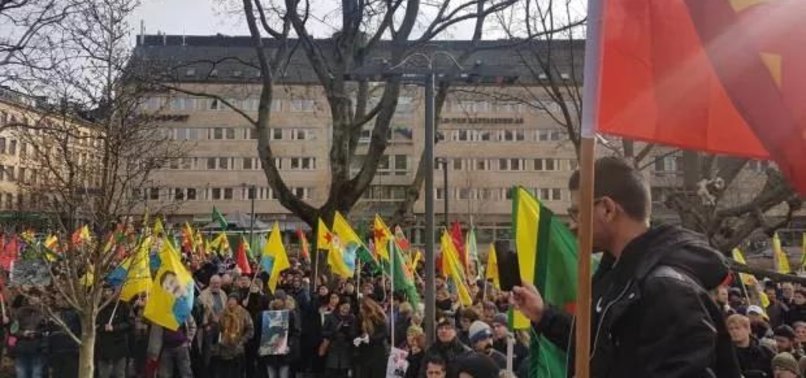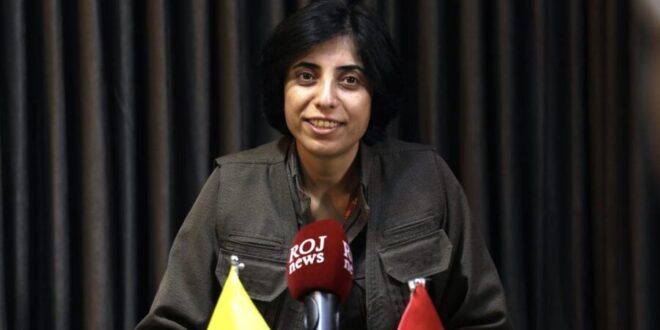
Terrorism Accusations from Türkiye Stymie Swedish and Finnish NATO Membership
Terrorism Accusations from Türkiye Stymie Swedish and Finnish NATO Membership
As a reaction to Russia’s unprovoked invasion of Ukraine, Finland and Sweden abandoned their long tradition of military non-alignment to seek security through membership in NATO. Both countries submitted their membership applications to NATO’s Secretary-General Jens Stoltenberg on May 18, 2022. While the overwhelming majority of NATO member states applauded the prospect of enlargement with the two Nordic states, one expressed reservations–Türkiye (“Turkey” has formally changed its name to “Türkiye”).
In the days leading up to May 18, President Recep Tayyip Erdoğan scolded Sweden and Finland for being “like a guesthouse to terrorist organizations” and lacking a “clear stance on terrorist groups,” which is why he was resisting both Nordic States from joining NATO (voanews.com, May 13). The Turkish Foreign Minister Mevlüt Çavuşoğlu reiterated the criticism by demanding both countries stop their “support to terrorists in their countries (Takvim, May 18).
Türkiye’s high-level diplomatic criticism raised consternation in the Nordic countries, which had hoped for quick acceptance into the alliance in anticipation of retaliatory action by Russia. At the center of Türkiye’s grievances stands the Kurdistan Workers’ Party (PKK), which is a designated terrorist group by the European Union, Türkiye, and other states that desire to join NATO. So, what lies behind Türkiye’s heightened criticism towards the two Nordic neighbors?
Türkiye’s Accusations of Sweden’s Support for Terrorism
According to Hakki Emre Yunt, the Turkish ambassador in Stockholm, Sweden is the primary focus of Türkiye’s displeasure. The country is home to a sizeable Kurdish community of 85,000-100,000 people and, according to the Turkish ambassador, Sweden has been cooperating with the Syrian Democratic Union Party (Partiya Yekîtiya Demokrat, PYD) and its armed wing, People’s Protection Units (Yekîneyên Parastina Gel, YPG). From Türkiye’s perspective, both organizations are PKK “fronts” in its struggle in Syria. Secondly, Sweden is accused by Türkiye of not extraditing individuals Türkiye suspects are members of terrorist groups (Dagens Nyheter, May 18).
Although Sweden was among the first European states to brand the PKK as a terrorist organization in 1984, the PYD remains openly active in the country, with an office in Stockholm since 2016. Türkiye voiced its “uneasiness” about this, despite Sweden assuring Türkiye that the office was never granted diplomatic status (Hürriyet Daily News, April 28, 2016).
In the framework of the global counter-Islamic State (IS) coalition, the Syrian Kurds were seen in many Western capitals as allies and were granted military support from several states. At the same time, the PYD also lobbied for political backing, including amongst Swedish politicians. Indeed, several high-level Swedish politicians, including Foreign Minister Ann Linde and Defence minister Peter Hultqvist, met PYD representatives. Other politicians voiced moral support to Kurds and their various organizations (Dagens Nyheter, May 19).
Although the accusations that the Swedish state would actively support Kurdish “terrorist attacks” in Türkiye are far-fetched, from the Turkish perspective, some support for attacks could still become a possibility in the future. For example, the Swedish Kurdish community has gained some political influence through several parliamentarians of Kurdish origin. One of them, Amineh Kakabaveh, is a representative of the Swedish Socialist party and played a decisive role in bringing the current Social democratic Prime Minister Magdalena Andersson to power. As a condition for Kakabaveh’s support, the Social Democrats had to promise to seek possibilities to deepen cooperation with PYD, YPG and YPJ, the latter being the “Women’s Protection Units” (Yekîneyên Parastina Jin) (Dagens industri, May 18).
Besides the political inroads by PYD, since 2016 Türkiye has followed with concern the modernization of the PKK weapons arsenal, including weapons produced by some NATO members (Al-Monitor, January 27, 2017). These weapons are believed to have been delivered to Kurdish Peshmerga fighters, including the YPG, for use against IS. Among the weapons seized from the PKK have been AT-4 anti-tank weapons made by the US and Sweden (Daily Sabah, June 1, 2016). It is unclear by whom and to whom specifically these weapons were delivered, but at least some were used not only against Turkish security forces in Syria but also inside Türkiye itself. This explains Ankara’s discontent with this situation.
Weapons were, therefore, mentioned in Türkiye’s demands to Sweden, which were published on May 23 on the official Twitter account of Türkiye’s Foreign Ministry (Twitter/@MFATurkiye, May 24). The demands included Sweden’s:
- Termination of political support for terrorism, including an end to denying Turkish requests for extraditing PKK/PYD persons and also “FETO [Gulenist] terrorists”;
- Eliminating terrorism financing, including $376 million in support Sweden announced for the PKK/PYD.
- Cessation of Sweden’s weapons support for the PKK/PYD.
- Lifting embargoes and sanctions against Türkiye.
- Global cooperation against terrorism, with Sweden taking “principled steps and providing concrete assurances” regarding Türkiye’s security concerns.
Sweden’s foreign ministry, however, quickly rejected Türkiye’s accusations that Sweden ever armed or financed PKK, PYD or YPG/YPJ (Aftonbladet, May 24).
Finland: The Side Show
Thus far, Türkiye has not publicly presented a similar list of demands to Finland. In comparison to its larger Nordic neighbour, Finland has a much smaller Kurdish community of around 16.000 members. In terms of PKK terrorism, the Finnish Security Intelligence Service (SUPO) named PKK as a terrorist group in its 1994 Yearbook after a Finnish tourist was wounded in a PKK bombing in Antalya in 1993 and two Finnish tourists were kidnapped by the organization the following year.
Despite Finland’s recognition of the PKK as a terrorist group, Türkiye’s displeasure toward Helsinki stems, as in the case of Sweden, from a conflicting understanding of the PYD. In 2018, the Czech Republic, based on a Turkish extradition request, detained Salim Muslim, the leader of PYD, but later released him. During the court hearing, it became known that Muslim had a residency permit in Finland (YLE, February 27, 2018).
More recently, in the Finnish government’s quest to repatriate Finnish IS women and children held in YPG-run camps in northeastern Syria, the Finnish authorities sought the assistance of the PYD (YLE, July 4, 2019; Helsingin Sanomat, December 10, 2019). From Ankara’s perspective, this could be interpreted as Finland’s giving tacit support to PYD. In light of Finland’s traditional foreign policy on such matters, it is highly doubtful that Finland would have chosen to side with the PYD against Türkiye. Finland, for example, has traditionally had good bilateral relations with Türkiye, and in the early 2000s Finland even lobbied for Türkiye to be accepted into the European Union.
Conclusion
Türkiye’s demands to Sweden and Finland circulate back to the conflicting interpretation of the nature of PYD/YPG and their overlap with, or distinctiveness from, the PKK. Despite Türkiye’s opposition, several NATO member states, including the U.S, have seen in the Syrian Kurds an ally against IS. While Türkiye has some grounds for pressing Sweden and Finland to do more to thwart PKK-related terrorism, with countering terrorism financing as a potential area for closer cooperation, it is highly likely that Türkiye’s intended audience includes other key NATO actors, especially the U.S. Sweden and Finland have both stated their willingness to discuss counter-terrorism issues with Türkiye, and the first high-level discussions between Swedish, Finnish and Turkish diplomats were held in Ankara on May 25. However, these talks did not lead to a breakthrough (Helsingin Sanomat, May 25). After the negotiations, President Erdoğan repeated Türkiye’s reasons for blocking the Nordic countries NATO membership in a guest article published in the Economist (The Economist, May 30). Türkiye has been uncompromising in its demands, with foreign minister Çavuşoğlu even demanding Sweden and Finland change their laws in order for them to come to terms with Turkish demands (Arab News, May 31 ). A quick coming to terms on this issue with Sweden and Finland is nevertheless in Türkiye’s interest because unrealistic demands or perceived unwarranted delays in their membership may harm Türkiye’s own standing in NATO.


